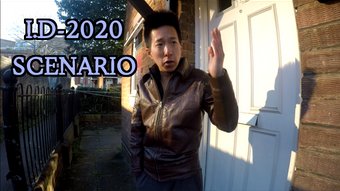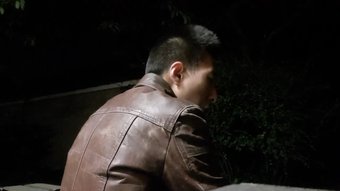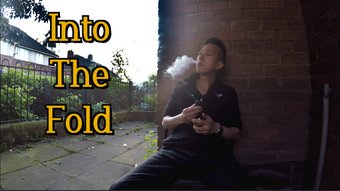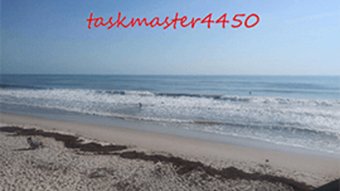Disarm The Enemy & Disengage
0
About :
NOTES AND PARAPHRASES
Judgment: Further the Work through careful Discernment between what is true and false, right and wrong, correct and incorrect.
The Image portrays the connection between cause and effect, where consequences are always based on the inexorable laws of nature.
To bite is to comprehend, and to bite through is to make distinctions. The top and bottom lines of the hexagram represent the upper and lower jaws, and both bear images of restriction and punishment. Each of the lines between them portrays some version of biting through flesh. Hence, the jaws define the general problem, and the teeth differentiate the details.
The symbol of losing teeth has the primitive meaning of losing one's grip because under primitive circumstances and in the animal kingdom, the teeth and mouth are the gripping organ. If one loses teeth, one loses the grip on something. Now this can mean a loss of self-control, etc. The English word grip is contained in the German word begriff (conception or notion). The Latin word conceptio means the same, i.e., catching hold of something, having a grip on something.
Jung -- Letters
In I Ching symbolism, the "ancient kings” are always synonymous with spiritual authority. Analogous to gods or cosmic forces, their "laws" are like the laws of karma or of nature -- inexorable in their outcome. Therefore, the punishment theme in the hexagram warns us that a lack of Discernment in the matter at hand has built-in penalties: i.e., "Get the message or suffer the consequences.”
Behold, sin and punishment are one, and the fire of punishment is the fire that refines my works. Even in the sinner I am the actor, and I, too, am the sufferer in the experience of punishment.
P.F. Case -- The Book of Tokens
To receive this hexagram without changing lines indicates a need to make some important distinctions in the matter at hand. “Figure it out” might make a good alternate title at such times. Cleary’s Taoist note on the image (“Those who administer laws should emulate the ancient kings in first clarifying them before executing them, in order to avoid mistakenly injuring life”) is a clear admonition to get all of your facts straight before proceeding with your inquiry. That you don’t know or understand something is implied.
SUGGESTIONS FOR MEDITATION
The twenty-first hexagram turned upside down becomes the twenty-second. The message for the superior man in the Image of each concerns the enforcement of law. What is the relationship between Discernmentand Persona in such a context? The component trigrams of these two figures also make up hexagrams number fifty-five, Expansion of Awareness and number fifty-six, Transition.The messages for the superior man in each of these figures also relate to litigation. Why? What do the four hexagrams suggest about the nature of the Work?
Line-1
Legge: The first line, dynamic, shows one with his feet in the stocks and deprived of his toes. There will be no error.
Wilhelm/Baynes: His feet are fastened in the stocks so that his toes disappear. No blame.
Blofeld: The feet are shackled so that they may not walk -- no error is involved! [This line suggests that extreme firmness would not be culpable at this time.]
Liu: His feet are put in the stocks. It will injure his toes. No blame.
Ritsema/Karcher: Shoes locked-up, submerging the feet. Without fault.
Shaughnessy: Wearing stocks on the feet and with cut off feet; there is no trouble.
Cleary (1): Wearing stocks stopping the feet, there is no blame.
Wu: He wears a pair of shackles, which covers his toes. There is no error.
COMMENTARY
Confucius/Legge: There is no walking to do evil. Wilhelm/Baynes: He cannot walk. Blofeld: This method is used to prevent evil-doers from progressing in their wickedness. Ritsema/Karcher: Not moving indeed. Cleary (2): Means not acting. Wu: The light punishment warns him not to walk the wrong path again.
The Master said:The inferior man is not ashamed of what is not benevolent, nor does he fear to do what is not righteous. Without the prospect of gain he does not stimulate himself to what is good, nor does he correct himself without being moved. Self-correction, however, in what is small will make him careful in what would be of greater consequence; and this is the happiness of the inferior man. It is said in the I Ching, "His feet are in the stocks, and he is disabled in his toes - there will be no further occasion for blame."
Legge: The first and last lines of the hexagram are undergoing punishment which is inflicted by the other lines. Line one's offense is minor, and he is confined to the stocks to prevent him from making it worse.
NOTES AND PARAPHRASES
Siu: At the outset, the man receives a mild sentence as a warning for a small offense.
Wing: Since this is only your first departure from the right path, only a mild punishment is forthcoming. This should serve the purpose of early Reform.
Editor: To be deprived of one's toes is to be unable to move -- the toes (or feet in some translations) are found in seven hexagrams, and all but one appear in the first line which indicates the beginning of movement. The idea is to nip a bad choice in the bud before it gains momentum. Sometimes the line can refer to circumstances beyond one's control which prevent one from taking an ill-considered or harmful action.
Even the venerable Church Fathers had to admit that evil is not only unavoidable but actually necessary in order to avert a greater evil... Punishment is also an evil and just as much a transgression as crime. It is simply the crime of society against the crime of the individual. And this evil, too, is unavoidable and necessary.
Jung --Letters
A. You are held fast to prevent mistakes. Comprehension or growth is effected through restricted circumstances.
B. Circumstances impede or prevent action.
Line-2
Legge: The second line, magnetic, shows one biting through soft flesh, and going on to bite off the nose. There will be no error.
Wilhelm/Baynes: Bites through tender meat, so that his nose disappears. No blame.
Blofeld: Gnawing flesh so that the nose is hidden in it --no error! [The meaning of this line is not at all obvious. The Chinese additional commentaries take it to mean that we may do a little harm to our own interests but that we shall not deserve blame for what happens.]
Liu: Biting the skin, his nose is cut. No blame.
Ritsema/Karcher: Gnawing flesh, submerging the nose. Without fault.
Shaughnessy: Biting flesh and cutting off the nose; there is no trouble.
Cleary (1): Biting skin, cutting off the nose, etc.
Cleary (2): Biting through the skin, destroying the nose, etc. [This is investigating principle and gradually penetrating.]
Wu: He bites through a skin burying his nose in it, etc. [This makes it easy for him to judge the case like biting through a soft skin …The judgment seems to have cautioned mildly not to over-judge an easy case.]
COMMENTARY
Confucius/Legge: She is mounted on the dynamic first line. Wilhelm/
Baynes: He rests upon a hard line. Blofeld: This is indicated by the position of the line (a yielding one) above a firm one. Ritsema/Karcher: Riding a solid indeed. Cleary (2): Riding on strength. Wu: He is riding on a yang.
Legge: Line two is appropriately magnetic in a central place, therefore her action should be effective. This is shown by her biting through the soft flesh -- an easy thing. Immediately below, however, is a strong offender represented by the first line. Before he will submit it is necessary to bite off his nose. Punishment is the rule, and it must be continued and increased until the end is secured. Ch'eng-Tzu says: "Being mounted on the dynamic first line means punishing a strong and vehement man, when severity is required, as is denoted by the central position of the line."
NOTES AND PARAPHRASES
Siu: The hardened sinner must be punished severely to secure the desired ends. Although indignation often goes too far in meting out punishment, it may still be just.
Wing: Punishment and retribution come swiftly and thoroughly to the person who continues in wrong behavior. Even though it may seem overly severe, it will effectively bring about Reform. Finally, there is no mistake in this.
Editor: This is an interestingly ambiguous line which admits of more than one interpretation. I have always taken the hexagram as symbolic of the process of differentiation, so the following associations come from that perspective: Bite: To "get your teeth into" something is to get a grip on it, to comprehend it. Flesh: Meat, food, nourishment -- the raw material, data or experience of the situation at hand. Soft: Easily bitten and penetrated. An easy discrimination. Nose: Intuition, subtle discrimination, as: "I smell a rat.” The various translators indicate that the nose is either injured or buried in the meat, suggesting that the intuitive faculty is damaged or obscured by an overly easy act of mental discrimination. A simplistic comprehension goes too far, but since the idea of "No Blame" is attached to the line this seems to be a natural consequence of the situation. A syllogism might go like this: "Drunk drivers are bad. George is a drunken driver, therefore George is bad.” This is the easy discrimination. The subtlediscrimination is that George, normally a modest drinker, was required by his Embassy job to drink toasts with the Russian ambassador and he miscalculated his capacity to hold his liquor. The easy distinction over-rides the subtle one because the offense is serious enough to require a severe punishment. The line can sometimes suggest the squabbles of lawyers, and the differences between the spirit and letter of the law.
The world of the soul and the realms of the spirit can only be known to him whose inner senses are awakened to life. The things of the body are seen through the instrumentality of the body, but the things of the soul require the power of spiritual perception.
F. Hartmann -- Paracelsus: Life and Prophecies
A. An oversimplification is better than a total illusion: half-true is better than totally false.
B. Suggests a conclusion based upon simplistic reasoning. You only see the obvious: seek the subtle hidden within the obvious.
C. “There is more to the subject than meets the eye.”
Line-3
Legge: The third line, magnetic, shows one gnawing dried flesh, and meeting with what is disagreeable. There will be occasion for some small regret, but no great error.
Wilhelm/Baynes: Bites on old dried meat and strikes something poisonous. Slight humiliation. No blame.
Blofeld: Gnawing dried meat, he was poisoned, but not severely enough to indispose him for long -- no error! [This line presages trouble through no fault of ours which will not, however, incapacitate us for long.]
Liu: By chewing dried salt meat one gets poisoned. Small humiliation, but no blame.
Ritsema/Karcher: Gnawing seasoned meat. Meeting poison. The small abashed. Without fault.
Shaughnessy: Biting dried meat and meeting with poison; small distress; there is no trouble.
Cleary (1): Biting on dried meat, running into poison. There is a little shame, but no blame.
Wu: He bites dried salted meat and gets an unpleasant aftertaste. There will be slight regret, but no error. [A yin in a yang position makes his judgment hard like biting on dried cured meat. The “unpleasant aftertaste” may suggest he is biting more than he can chew, he faces rowdy offenders, or he has a little rough time. But he makes no error.]
Tags :
Their limit for today is $0!























Comments:
Reply:
To comment on this video please connect a HIVE account to your profile: Connect HIVE Account